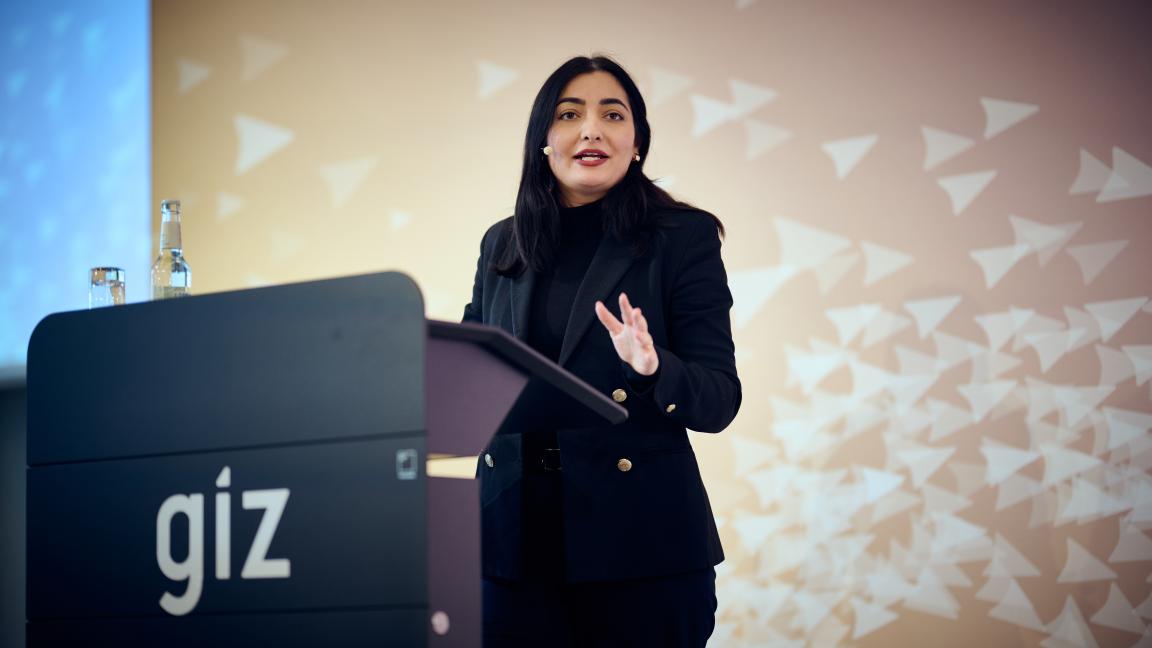GIZ has been active in Syria since 1976.
Since the collapse of the Assad regime in late 2024 after thirteen years of conflict, Syria has entered a transitional phase, marked by both opportunities and significant challenges. A new government is working to reestablish state authority and bring back essential government functions. However, Syria continues to face multiple challenges, including fragile security structures, a severely weakened economy, and the ongoing need for basic services across many regions.
Throughout the years of conflict, the Deutsche Gesellschaft für Internationale Zusammenarbeit (GIZ) GmbH has been supporting civil society organizations in areas outside of government control. Since December 2024, GIZ is expanding its cooperation with the emerging transitional state institutions, while maintaining close collaboration with local actors. Operating on behalf of the German Federal Ministry for Economic Cooperation and Development (BMZ) and the German Federal Foreign Office (AA), and cofinanced by the European Union (EU) and other partners, GIZ remains committed to improving the living conditions of the Syrian population, creating sustainable opportunities, and contributing to broader political and institutional change.
Our work on site: Fostering the State Transition to the Benefit of the People of Syria
GIZ supports the reform of state structures in Syria that directly benefit the population. The goal is to advice the Syrian government on technical level to fulfil its responsibility for addressing the basic needs of its people. Support focuses on critical areas such as health, economic recovery, education, governance, and vocational training.
Supporting Civil Society
GIZ is supporting civil society organizations, internally displaced people, and host communities in different parts of Syria. Local partners, mainly Syrian non-governmental organizations (NGOs), are improving living conditions by providing basic services such as healthcare and creating long-term opportunities for the future through education and training measures.
Restoring Land and Establishing Food Security
GIZ is committed to mitigating the risk of a food crisis in northern Syria. Since 2015, GIZ has trained over 10,000 farmers and livestock owners on how to increase food production in a more efficient, sustainable, and environmentally friendly manner.
Expanding Healthcare and Psychosocial Support
GIZ is repairing damaged hospitals and health centres to keep them operational. In addition, GIZ is focusing on training local doctors and medical staff. Doctors, nurses and psychologically trained professionals keep medical services running and ensure that one million people per year have access to medical care. To assist people affected by the war and displacement, there is a particular focus on psychosocial support services, with a special attention to women.
Rebuilding Earthquake-Affected Areas
In the areas that were most affected by the 2023 earthquake, GIZ is helping to restore access to income, education and health services. Working through local NGOs, GIZ is assisting schools, hospitals and markets, with a focus on improving the livelihoods of women and women-led households through training measures and income-generating initiatives.
Syria in brief
Insights


